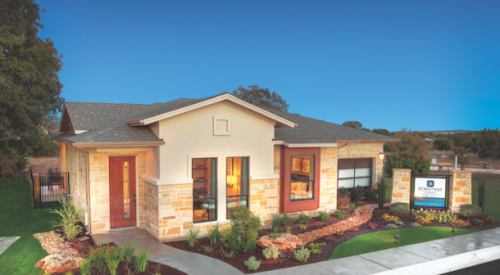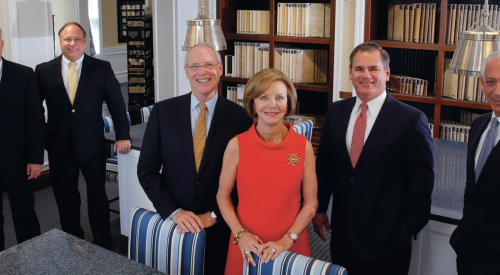| Josh Freeman has successfully put his own stamp on the company his father built.
|
Josh Freeman, 35, was already president of Carl M. Freeman Associates, a diversified, $100-million-a-year Potomac, Md.-based building and development firm, when his father died in 1998. Carl’s death was sudden, but at age 87, it should not have caught the company off guard. He had, after all, cut back to four days a month.
Josh, a former U.S. Army Green Beret, settled into the family business, but didn’t really prepare for it in his youth. He didn’t go to college, didn’t study business management. But he began working in the company in 1986. He came up through the ranks, eventually worked as Carl’s assistant, then finally-gradually took over day-to-day operations. It seemed this was a family firm standing on solid ground in succession planning. But it really wasn’t.
It’s obvious now that Carl thought about succession and planned for it, but he never talked about it with Josh, or with others in the company. And when he died, it was still Mr. Freeman’s company. Josh had to find a way to make it his own. There are lessons here...
Professional Builder: Did your father push you to join the company?
Josh Freeman: No, not at all. When I joined the military, I didn’t plan on becoming part of the company. Then while I was in the military, I wrote to him and said that I’d like to consider it. He wrote back and said to come on.
There was never a succession plan put down on paper?
No. But after he died, I started writing down the things I feel are necessary to structure a good succession plan, and I realized he had done all those things. He just never articulated them.
You never had any formal training in the building business?
I took some business school classes, but never graduated. But don’t underestimate the influence of kitchen-table conversations. I never realized until now how thought-process-shaping those were. My father was constantly asking me no-win questions about business situations. As a kid, it was infuriating. But now, as an adult (and business owner), I realize I’ve seen some of these situations before. Has the management team changed since you took over the company?
Yes, but it happened before his death. When I became president and really started to come into my own, most of the senior people left to start their own companies. There was a semi-orderly transition from people my father hired to people I brought on. Today, they are all my people. I don’t have a cadre of senior advisors inside the company, but I do have a strong network of very senior people, whom I know through my father, who still advise me.
How many employees do you have, and how do you organize the company?
About 200, in separate divisions for home building, shopping center development, and a new one for golf course development. I’m trying to spend my time working on the machine rather than in the machine. I’ve delegated most of the major operating decisions to my executive vice president and divisional vice presidents. I spend my time working on the structure of the organization, strategic planning, and recruiting.
You’re still single, but you seem to be thinking about succession already...
Because I’m spending so much time working on the machine, the most important thing for me, when I retire, is that I leave it stronger, more viable for the future. Stability is my greatest objective. I’m doing this more for the employees and the legacy I leave than to promulgate jobs for my family. If we have a strong culture, and provide a social good - which I think is the primary reason for being in business - then the company is not just an investment, it is an ongoing concern that helps improve the lives of our employees and the communities where we operate.
What was the hardest thing to deal with after his death?
My father provided real direction for this company. The train tracks were set in place as to the direction of the company. We knew how we were going to increase our shopping center holdings. We’ve bought four in the last 18 months. We knew how we were going to grow our home building business, by getting into golf communities in resort locations. Because of all that, I was able to concentrate on long-range planning. He set up his estate so that we didn’t have to sell a large block of his stock or big assets to pay the tax man.
I just wish he’d have communicated a little bit more. I’m not sure that if I had asked him, he really would have talked to me, that he would have said, "Here’s my plan, from A to Z and I’m at L right now in implementation."
It took me a while to realize that I have to explain to people that I’m not him. It’s hard to realize that you’re being judged not on your actions, but on how those actions are interpreted from the paradigm of who they thought your father was.
When your father has been your mentor, can any amount of succession planning prepare you for the loss of his support?
I thought I was ready, from an emotional standpoint, especially having been in the military, for the impact on me and the organization. But I wish I had spent more time with the employees, more time with our contractors, with our governmental relationships, with our banking relationships. I underestimated the security that was felt because Mr. Freeman was still there. Everybody said, "Well Mr. Freeman is there. Of course everything is going to be alright."
What changes are you making to the strategic plans that were in place?
We built about 140 homes last year, for $40 million in revenue, but none of that was in golf communities. But we broke ground this year on our first golf community. By next year, all our home building revenues will come from golf projects. All of our production is second homes in resort locations, in the seashore area of Delaware. We’ve sold 3000 acres in the Washington, D.C., suburbs in favor of 1400 acres in Delaware. We don’t want to compete with the big production builders and accept their margins. We make much better margins in the resort areas.
Your approach to structuring a work environment for employees is very different from most builders. Why?
The real value of a company is its people. If we just valued assets, we could grow. But by valuing people, we believe we’ll grow exponentially. We are trying to create an environment that will challenge people professionally and personally. The labor shortage is depleting the manufacturing and service sectors of our economy, so we have to treat people well to grow. We’ll spend $1 million this year on training alone. Every employee gets at least 40 hours of training every year. We have a goal to make the list of the top 100 companies to work for.
I had a larger-than-life father who cast a big shadow. Where do I fit in? I want people to say they are better off for having been in this organization.











